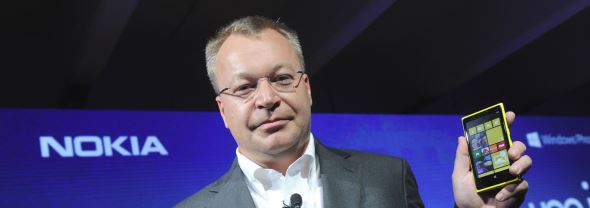Reflections on Microsoft & Nokia (part 2)

So it’s now been several days since the shock announcement that Microsoft are acquiring Nokia. And we’ve had plenty of time now to hear opinions from talking heads and industry experts as well as let the news sink in. But now it’s time to look back and what exactly happened, why and what it means for consumers and all companies involved in mobile technology. Over the next three parts of this series, we’ll do exactly that. Today we pick up where we left off by continuing from part 1 in which we looked at The Rise and Fall of Nokia.
The £4.6 billion deal
So what about this deal? Well Microsoft have been working with Nokia for some time now on their smartphones running the Windows Phone operating system. In fact, it’s fair to say that Nokia has pretty much been Microsoft’s mobile arm since 2011 when they announced their partnership. In the deal, Nokia chose Windows Mobile as their main mobile operating system over their own Symbian software.
In return, Microsoft ploughed hundreds of millions or even billions into supporting Nokia. They paid massive amounts to fund the ever-increasing marketing budgets required to convince people to use Windows Phone. The partnership also involved sharing of ad-revenue and royalties.
With their track record of success, you may well ask why Nokia didn’t chose to go with Android like many other mobile manufacturers such as HTC and LG. It been a well-known open secret in the industry that Nokia were too scared to compete in the open Android market. They thought that they would not survive when pitched up again the stranglehold of Samsung et al.
Instead, their strategy was to integrate vertically with their phones being manufactured from Nokia components rather than off-the-shelf parts. This was all behind their decision to try and make a competitor to Google and Apple with Microsoft and Windows Phone.
Now, with the announcement of this detail, Microsoft is going all in. They have paid over £4.6 billion (almost €5.5 billion) to buy the whole Nokia company. Included in the sale price is 23,000 staff who will now work for Microsoft as well as Nokai’s Lumia and Asha brand names. This massive deal will also see Microsoft invest an additional €1.5 billion in financing to help with the Finnish company’s cash flow woes and debt issues.
Of course, as is an increasingly-familiar story in the mobile industry, Microsoft is avoiding taxes by financing the deal with non-US cash that they don’t have to repatriate. In this way, it’s thought they are avoiding billions in tax payments.
Nokia and Microsoft and the role of Stephen Elop
How had Nokia’s partnership with Microsoft been going so far? Well, they had been struggling but things might have been picking up shortly. Windows Phone was reaching a significant market share in major markets in Europe such as France and the UK as well as doing well in growing economies like India and Mexico.
However, many are seeing signs of a sort of conspiracy in the demise of Nokia. Stephen Elop was the head of Microsoft’s Business Division for two and a half years before he took over as Nokia’s CEO in September 2010. This was the first time that Nokia had a non-Finnish director and Elop earned over $6 million as a golden handshake signing bonus. As part of the deal for Microsoft acquiring Nokia, Elop will now return to Microsoft as head of their Devices team.
Elop’s reign at Nokia was fraught with controversy. His favouritism for Windows Phone over their internally developed operating systems – Symbian and Meego – was seen as a sort of Trojan horse-style sabotage. Many in the industry thought that Elop was trying to destroy Nokia from the inside. It was under his leadership that all internal smartphone development was killed off at Nokia in favour of Microsoft’s product. He was also damaging Nokia’s reputation by deriding it in public statements.
As a result, Nokia’s market share has plummeted over the last few years. Of course, this is also meant that the value of the company has fallen meaning it is ripe for the picking as Microsoft is now able to snatch itself a bargain. Could it really be that Stephen Elop was a Microsoft plant simply devised to allow this acquisition at a preferential price a few years later? Certainly there have been rumours that Microsoft would try to buy Nokia ever since he was appointed a few years ago.
So there you go. Please go on to read our final instalment of this series over at part three. But also let us know what your thoughts are on this. Have Nokia undervalued themselves in this deal? Were they right to reject Android and commit themselves to Windows Phone? Is it fair to say that Elop undermined Nokia while he was at the company and that he had acted like a Trojan horse?





